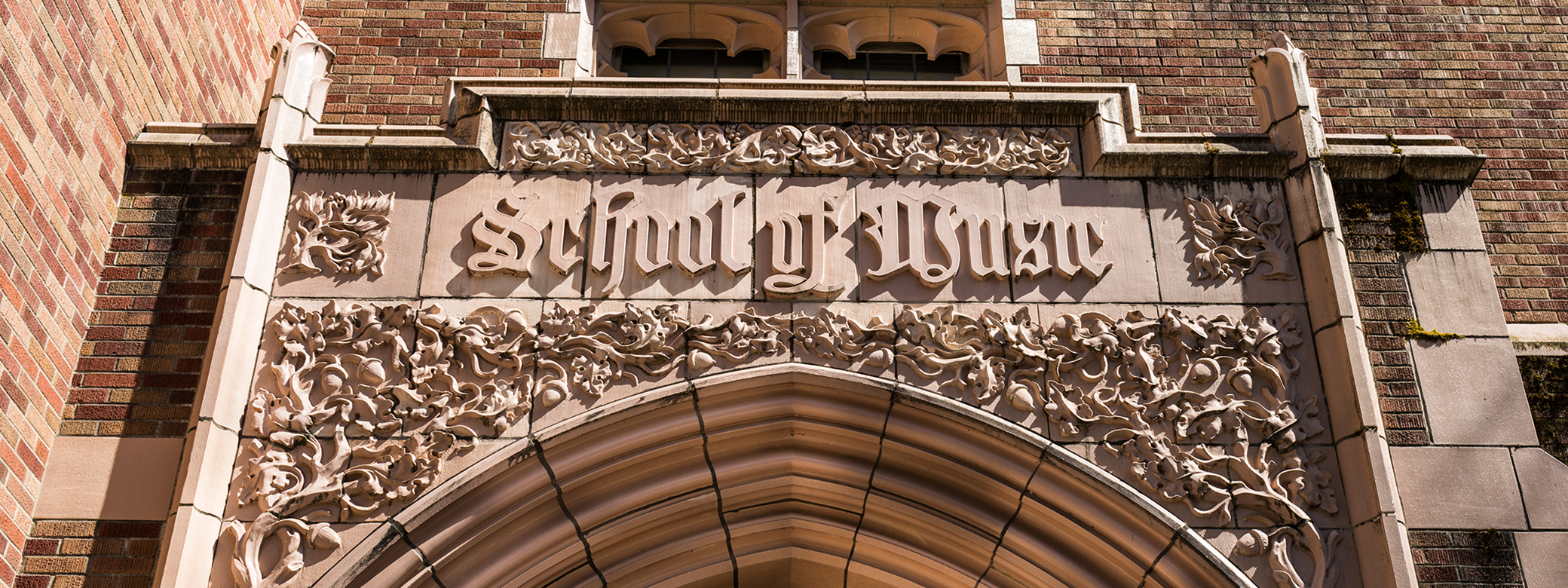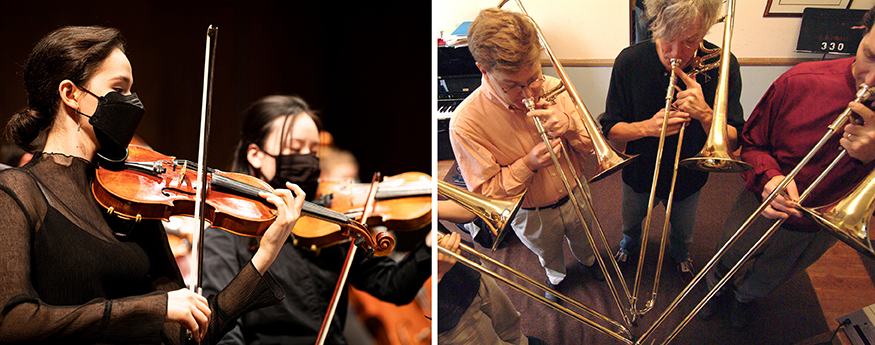
Music is all around us. It heightens tension and emotion in films. It lulls babies to sleep. It inspires us to dance. While most people have an appreciation for music, for some it is central to their lives and careers. But how does one prepare for a life in music?
Perspectives editor Nancy Joseph spoke with UW School of Music faculty and staff about preparing students for music careers, including Ted Poor, associate director of the School of Music, professor of drums and Donald E. Petersen Fellow for Excellence; Christina Sunardi, associate professor of ethnomusicology, Adelaide D. Currie Cole Endowed Professor, and chair of the Department of Dance; and Katie Hollenbach, School of Music assistant director for admissions, recruitment, and community outreach, and lecturer.
Why do we need music in our lives?
Ted Poor: Music is so inherently human at its core. It teaches people to be honest and empathetic and courageous. It creates experiences that are unique, built on very mysterious and beautiful human connections. There's nothing else like it.
Christina Sunardi: Being in ethnomusicology, I find music is closely connected to people's cultures and identities — who they are and what they want to pass on to others — in such a fundamental way. Music can also be an important way for people to deal with trauma and to heal. Sometimes people can't talk about traumatic experiences, but they can play music or sing about them.
Katie Hollenbach: I have a music history background and I often think of music as the most beautiful reflection and record of people. I love tracking how music reflects events and cultures as they change.
Sunardi: This brings to mind the decision to send items to outer space for an intelligent alien species to understand who we are as humans. One of the things we sent into the cosmos was our music, which gets back to the idea of music capturing what it means to be human.
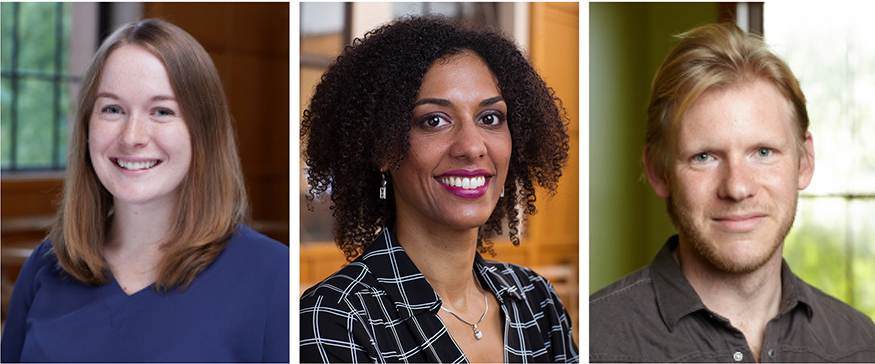
Despite the importance of music in our lives, some students — and their parents — can be hesitant about a music major. How do you address that?
Poor: Parents want to be sure that their child’s efforts in college will amount to something that pays the bills after they graduate. With music, it’s not always obvious what that pathway will be, beyond getting a job at an orchestra or at a university or teaching lessons. People's imaginations end right about there. But cultivating exceptional musical skills puts students in a place where they can apply those skills in so many different ways.
Hollenbach: I teach a course called Career Building for Musicians, and a main topic in the course is transferable skills. Students learn how to translate and evaluate the skills they develop through music — things like creative problem solving, collaboration, and being able to communicate with audiences. Musicians are very analytical and can be very focused for long periods of time. All of these things combined are what employers look for.
What else does your career development course cover?
Hollenbach: It's a very real-world kind of class. We work on things like networking and social media presence, but we also have a lot of guest speakers. We want students to see examples of the different ways a career in music can look, because the possibilities are endless.
The School offers a range of specializations. Are students surprised to learn about all the options available?
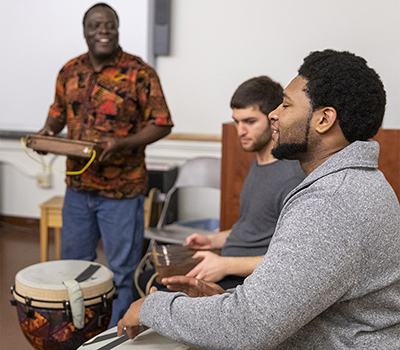
Sunardi: I do see students who come in thinking that to have a career in music means to be a concert pianist or concertmaster violinist or a recording career. We help them understand that there are many ways to have a career in music. Students in music education go on to teach in K-12 schools. Some students go on to run their own studio on a particular instrument or become a choir director or go into academia. Other students have gone into sound engineering. Some students don’t come in thinking of themselves as composers but discover the composition track.
Hollenbach: Students are sometimes surprised to learn about music degrees they've never heard of before. We offer an undergraduate degree in ethnomusicology and many high schoolers have never heard that word. When I describe what it is, they’ll say, “Oh, that's something I'm really interested in. I didn’t know that was something I could major in.” It's fun to see students explore and discover all the things they can do.
The Music Building will soon undergo a renovation. What are strengths of the facility and improvements you’re looking forward to?
Hollenbach: The number one strength is that we have a very large building just for the School, right on the quad. It has an auditorium, classrooms, and practice rooms. It's all there and it's all used a lot. And people are really invested in making it better with the upcoming renovation, which we very much need to help improve accessibility and allow our students to thrive as musicians learning and working in the 21st century.
We want students to see examples of the different ways a career in music can look, because the possibilities are endless.
Poor: I agree that there’s huge value in the fact that we’re all together in this building. As for renovations, the plans include renovating a few rooms as a suite for recording. We acquired some initial recording gear a few years ago, and this will be its permanent home. Once it’s in place, we’ll create courses in audio engineering and hope to someday add a degree program. But the goal is not just to teach students how to become audio engineers, but also to teach our performing students what it's like to be on the other side of the glass. It's increasingly important for people to know how to record themselves and how to produce some sort of music on their own.
Why is that important?
Poor: It comes up all the time. Maybe you play violin and somebody says, “Hey, I need violin on my song, can you record yourself?” If you know how to do that in a professional way, that will lead to more opportunities. Or maybe you want to make a demo tape of your music to give to a club owner or another artist as a way of introducing yourself. Being fluid in this technological language is just more and more expected of a successful freelancing musician.
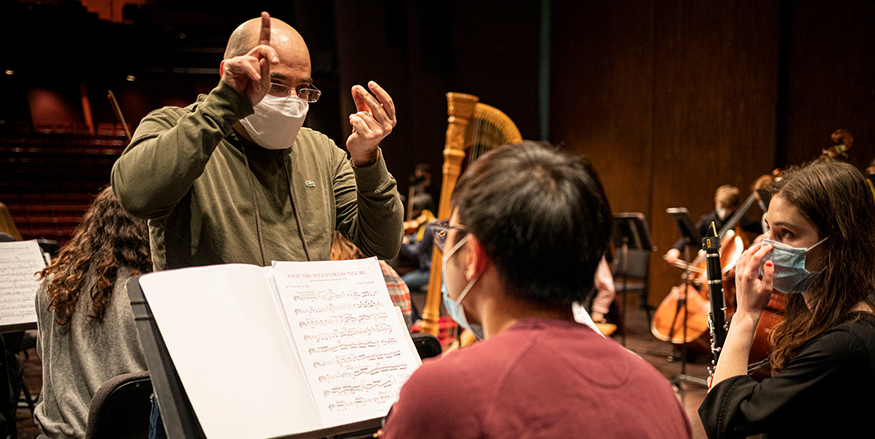
Are there plans to renovate Brechemin Auditorium as well?
Hollenbach: Brechemin Auditorium and one of our larger classrooms upstairs will be renovated as performance spaces. We use Brechemin Auditorium all the time — for large lecture classes, recitals, guest concerts — so the fact that it's being prioritized to get a facelift is really exciting.
Sunardi: Brechemin has a more intimate feel than the big stage in Meany Theater or even Meany Studio Theater. Our students can have that as an experience, and then also have an opportunity to perform in Meany. It’s a good learning experience for them to perform in different spaces and get those different vibes, since most professional musicians perform in a variety of settings.
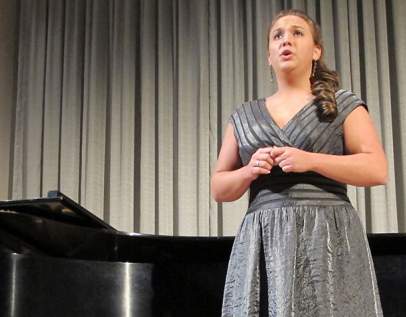
Hollenbach: And with a classroom being freshened up to be a performance space as part of the renovation, students will have yet another place to perform — one that’s even more intimate than Brechemin.
Speaking of performance, many music faculty perform in the Seattle area. How important are those connections with the local music scene?
Poor: Our faculty are very active in their careers, aside from their teaching, so they're going to be part of the Seattle and global music community. I don't think I could do this job if I didn't go out in the world and make music. That is the thing that fuels me personally and also informs how I work with the students. I think those connections are vast and really important.
Hollenbach: I see it throughout all of our programs. Our music education students do their student teaching in the Seattle Public Schools and make connections through that. A lot of our conducting students end up leading ensembles, orchestras, bands, and choirs all over the Puget Sound area. And as Ted mentioned, our faculty are active artists. They bring that experience to their students and help them network and invite them to opportunities. And eventually those students become colleagues.
I've never felt more engaged and excited about the very real potential to come together and further define this school as a unique and excellent place. ...There's a real sense of possibility right now.
Poor: My students are going into Seattle to the jam sessions at clubs with local Seattle jazz professionals. Sometimes they're able to play, sometimes not, but they're already making personal and musical connections while they're freshmen. They are not starting from scratch to become part of the community after college.
Sunardi: In ethnomusicology, we've been working really hard to foster relationships with community organizations and bringing in artists from the community as visiting artists. In different parts of the School of Music we're working with the community in different ways, but we’re all doing it.
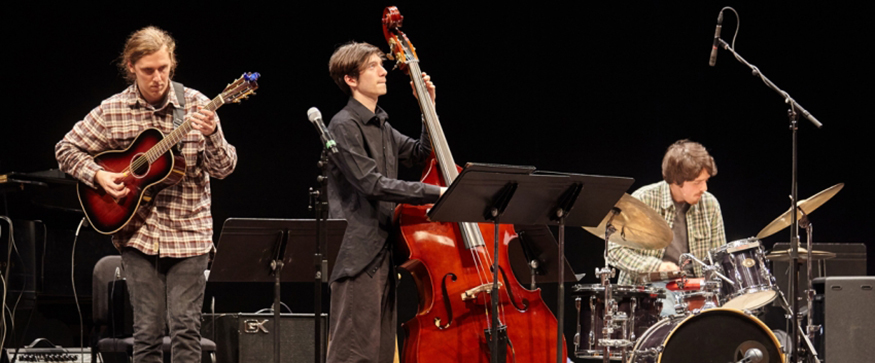
What about non-majors interested in music? Are there efforts to make them feel welcome?
Hollenbach: I think about non-majors all the time. That's a big priority for us, especially in our ensembles. All of our ensembles are open to non-majors. Some ensembles require auditions, some don't. We also have a pretty flexible music minor, and non-majors can audition to take private lessons with our faculty. We have courses geared towards non-majors as well.
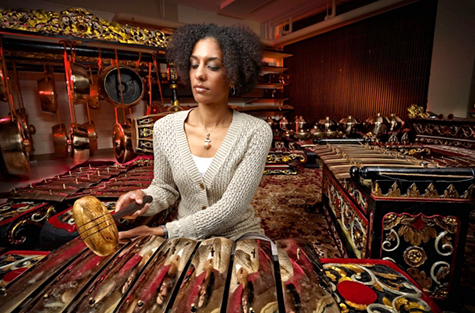
Sunardi: Most of the undergraduates I teach are non-majors. American folk music, for example, is a class geared towards non-majors. Or Music in Asian America, which I taught last quarter. Sometimes students come in and they're a little bit intimidated, wondering if they can succeed in a music class without an extensive musical background. I think they're pleasantly surprised that they can keep up and learn some new ways of talking about music. And hopefully those who have a more extensive musical background learn more ways to think about how music can impact culture and society.
Poor: Right now there's a group of faculty working with Joël [Durand, acting director of the School of Music and Aura B. Morrison Endowed Professor] to think about how we can improve on our curriculum, and one idea that's come up is a class that will survey what it means to be in music. It would introduce what it means to play in a chamber ensemble, to improvise, to compose, to be a scholar or a musicologist, and to be in recording technology, with the hope that students will discover areas they’re interested in and continue in those areas.
Between the renovation and curriculum planning, it sounds like an exciting time.
Hollenbach: I keep using the word “optimistic” in various hallway conversations. It just feels like more and more faculty are really devoted to making this the best version of the School of Music.
Poor: This is my tenth year here, and I've never felt more engaged and excited about the very real potential to come together and further define this school as a unique and excellent place. Over the last year or so, there's been a framework set up by Joël to have faculty go back to some basic ideas about what it is we find important in music and take those ideas through our curriculum. I'm genuinely excited to invest time and effort and thought into this. There's a real sense of possibility right now.
More Stories

AI in the Classroom? For Faculty, It's Complicated
Three College of Arts & Sciences professors discuss the impact of AI on their teaching and on student learning. The consensus? It’s complicated.

What Students Really Think about AI
Arts & Sciences weigh in on their own use of AI and what they see as the benefits and drawbacks of AI use in undergraduate education more broadly.

Bringing Music to Life Through Audio Engineering
UW School of Music alum Andrea Roberts, an audio engineer, has worked with recording artists in a wide range of genres — including Beyoncé.
